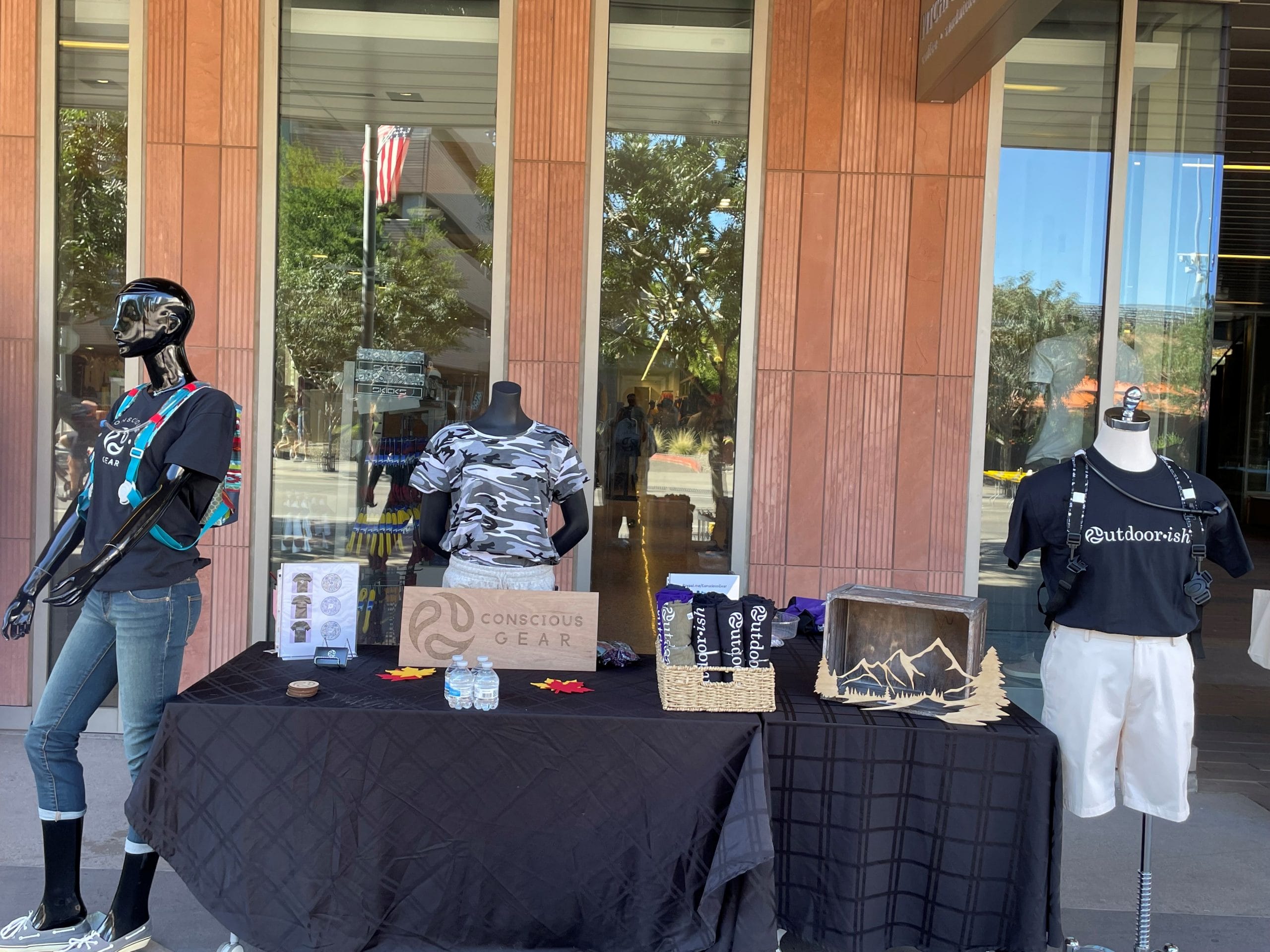In honor of Black History Month, we’re spotlighting three outstanding individuals currently in the Venture Devils program including Venture Devils Founder of Conscious Gear, Charlotte Bowens, Venture Mentors, and seasoned entrepreneurs, Lisa Guice, Founder, Global-Vision, LLC and Eric Walker, CEO & Founder, The Next Step Agency. We’re excited to share their inspiring journeys and advice for your entrepreneurial journey with you.
Tell us about your background.
Charlotte Bowens: I’ve only recently identified as an entrepreneur because as a kid when my brother and I occasionally sold snacks to our peers at school, we did it because we needed money. As a young adult, I referred to myself as a freelancer who provided bookkeeping services, wrote grants, and worked on graphic design projects. As the years went on, I would always have a day job and one or more ‘side-hustles’ where I served as a contractor or consultant on a whole host of different gigs. It wasn’t until I started Conscious Gear in 2020 that I would finally call myself an entrepreneur but when I look back, I now realize I was always an entrepreneur but didn’t even know it.
Lisa Guice: My background as an entrepreneur is one that contains a heavy grounding of an individual’s mindset and pushing them beyond their now into their next. I continuously aim to improve my education so that I may serve my clients and the world. This mindset has led to my success and certifications in Seminars and Presentations, Mastery in learning modalities and curriculum structure, Business Administration at the University of Phoenix, Leadership and Professional Development Certification, Certified Life and Business Coach and as a Harvard Business School Alumni (Focused studies in Entrepreneur Essentials mastering proven framework for building and financing new ventures). I have also had the pleasure of lending my expertise to the business community serving as a contributor for Huffington Post and Forbes.
Eric Walker: The Next Step Agency was started in 2015 with a mission to help organizations innovate in the areas of people, process, and technology. We were well aware that success in the future would depend on a company building a strong foundation rooted in strategic planning around those three key areas. We created a methodology that could help our clients prioritize market differentiators, and align resources to achieve greater results. As a minority founder, having a creative approach blended with a strong ability to overcome adversity was something that helped me understand my clients’ challenges and present solutions to generate an immediate and measurable impact.
What does Black History Month Mean to you?
Charlotte: As a young person, Black History Month often felt like the only time in the year when Black people were affirmed, celebrated, and honored for their contributions to society. One month was never enough for me but I appreciated it nonetheless and so did many of my friends of all colors. BHM meant I got to hear about all the amazing ways black people made their accomplishments despite the obstacles. Their stories were always inspiring and provided much mental energy to help me endure and stay on the path. As I get older, I still value Black History Month but envision a day when our stories as black people are an integral part of society each and every day.
Lisa: For me, Black History Month has always been a time to revisit the trials and honor the triumphs of our ancestors. A time for the world to see and acknowledge the amazing contributions and innovations black people have and are making in the world.
Eric: The celebration of ‘Black History Month’ began as ‘Negro History Week’, created by Carter G. Woodson, a historian, scholar, educator, and publisher. It became a month-long celebration in 1976, and the month was specifically chosen to coincide with Frederick Douglas, among other significant figures.
Black History Month highlights the overwhelmingly positive impact that the Black community has on the success of our amazing country. Whether we look at Literature or Science, Technology or Sports – the body of work and disciplines covered is broad, significant, and deserves recognition. It is an opportunity to pause and reflect on how the contributions of so many individuals have collectively accomplished so much.
It is also an opportunity to build bridges. To reflect on how we can always seek to understand. It is a chance for empathy – to see the world through another’s perspective. It’s a story of overcoming adversity, determination, and grit, belief in a greater good against hate, violence, and oppression. It’s a story of America – how change can happen. How systems can be built, changed, and improved. How all citizens have a voice, can and will be heard – regardless of circumstance.
What advice would you share with the BIPOC community?
Charlotte: I’ll sum up my advice in three bullet points (figuratively speaking).
First things first, trust your instinct on everything from people, places, and things. I’ll use the words from a Jill Scott song, ‘everything ain’t for everybody.’ I have walked away from or walked towards something because of instinct, even if it scared me to death. I learned my instinct is 100% correct, so use your instinct to help guide you when you feel as if you don’t know what to do.
The second piece of advice is hard and easy at the same time but PLEASE learn to say NO and firmly, assertively, and loudly if you need to. There’s nothing wrong with this two-letter word and it will come in handy often and especially when you need it.
My last bit of advice comes from my youngest son, who often tells me (when I feel like quitting) that someone in the world needs what it is that I have to offer as an entrepreneur and they’re waiting for me to show up and show out (that last bit was from me). So know that you are meant to be an entrepreneur and you have something special to share with the world, so get yo’ behind to work.
Lisa: My advice to the BIPOC community about entrepreneurship is the importance of truly believing that the moment you are blessed with an idea you have received permission to move on it. No doubting, no second-guessing or naysayer is allowed to stop you. You were chosen for that specific seed, and you are the only one who can make sure it grows and blossoms into what it is supposed to be. If you were not equipped or enough already it would not have been given to you. The journey of an entrepreneur will be a real eye-opener. I never knew there would be so many highs and lows. Nor did I know that entrepreneurship would tap into every insecurity that one possesses (so buckle up for personal growth, buttercup). You will be pushed and tested but DO NOT GIVE UP!
Eric: “We all have dreams. In order to make dreams come into reality, it takes an awful lot of determination, dedication, self-discipline and effort.”—Jesse Owens
Entrepreneurship is extremely difficult. The odds are against your success. According to the SBA, the failure rate for startups is 90%. And as a BIPOC founder, the challenges are even more complex. However, funding to Black entrepreneurs in the U.S. hit nearly $1.8 billion through the first half of 2021 — a more than fourfold increase compared to the same time frame last year.
Things are changing, and you will have an opportunity to be a part of that change. There is a community and network of people dedicated to your success. Be inquisitive, ask questions, make connections. It’s a hard and difficult road, but the reward is worth the effort.








